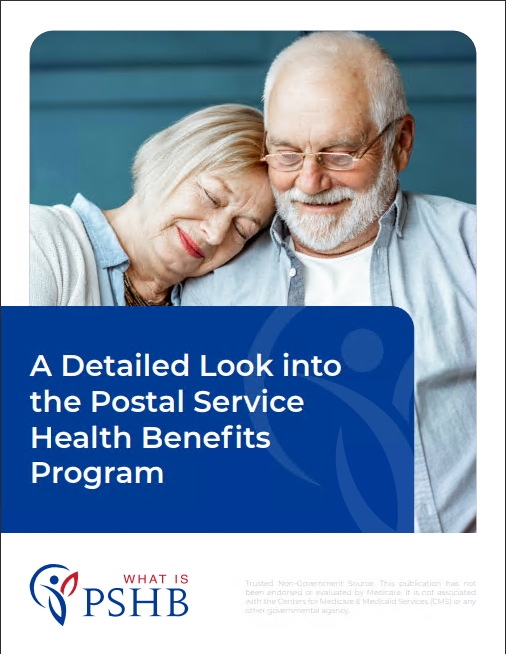Key Takeaways:
- The 2024 PSHB Open Season offers postal workers and retirees the chance to review and update their healthcare coverage before the transition from FEHB to PSHB.
- Carefully reviewing your health plan options during Open Season can help you avoid unexpected costs and ensure that your plan meets your medical needs for 2025.
Time to Review Your Health Coverage — What PSHB Open Season 2024 Means for Postal Workers and Retirees
With the 2024 Postal Service Health Benefits (PSHB) Open Season approaching, it’s time for postal workers and retirees to reassess their healthcare coverage. Scheduled from November 11, 2024, to December 9, 2024, this Open Season represents a pivotal moment, as it marks the official transition from the Federal Employees Health Benefits (FEHB) program to the PSHB program, which will take effect in January 2025. This shift presents both opportunities and challenges, making it essential to evaluate how the upcoming changes will impact your health benefits.
Whether you’re an active postal worker or a retiree, participating in the PSHB Open Season is critical. The choices you make during this period will determine your healthcare coverage for the following year. Missing the deadline could result in being automatically enrolled in a default plan that may not fit your needs, so it’s important to use this time to carefully assess your options.
What Is the Postal Service Health Benefits (PSHB) Program?
The Postal Service Health Benefits (PSHB) program is a new healthcare plan system designed exclusively for U.S. Postal Service employees, retirees, and their dependents. It was established to separate postal workers from the larger Federal Employees Health Benefits (FEHB) pool, allowing for more customized coverage that better reflects the healthcare needs of postal employees.
Starting in 2025, postal workers and retirees will no longer be covered under FEHB. Instead, they will need to choose a PSHB plan that provides appropriate coverage for their health and financial circumstances. The upcoming 2024 PSHB Open Season is the time to make this transition. This is the first opportunity for postal workers to review their options and make the necessary changes to ensure they have the best healthcare coverage moving forward.
Why Is Open Season So Important?
The 2024 PSHB Open Season is particularly significant because it represents the first and only opportunity to switch from FEHB to PSHB before the transition is complete. It’s also the only time of year when postal workers and retirees can change their health plan or adjust coverage without needing a qualifying life event, such as marriage, the birth of a child, or retirement.
Failing to act during Open Season could result in automatic enrollment in a default PSHB plan, which might not offer the coverage or provider network you need. Actively participating in Open Season allows you to customize your healthcare coverage to suit your current and anticipated medical needs.
How Will PSHB Plans Differ from FEHB Plans?
While the PSHB program is expected to offer coverage similar to what FEHB provided, there will be key differences. As postal employees and retirees move into a separate risk pool, PSHB plans may vary in terms of pricing, provider networks, and plan structures. Here are a few aspects of the PSHB plans that may differ from FEHB:
- Cost structure: Premiums, deductibles, and out-of-pocket costs may differ under the PSHB plans compared to FEHB, as postal employees are in a separate pool.
- Provider networks: Each PSHB plan will have its own network of doctors, specialists, and hospitals. You’ll need to verify whether your current providers will still be covered under your new PSHB plan.
- Plan choices: The types of plans offered under PSHB may be more tailored to postal workers’ specific healthcare needs, potentially providing different options for managing costs or accessing specialized care.
Understanding these differences is essential when making decisions during Open Season. Comparing the details of each plan will help you choose one that best aligns with your healthcare needs and financial situation.
What Should Postal Workers and Retirees Consider Before PSHB Open Season?
Navigating Open Season requires careful planning, and several factors should be considered before making your final healthcare decisions. Here’s what you need to evaluate before selecting your PSHB plan:
1. Assess Your Healthcare Needs
Start by reviewing your current healthcare usage. Do you or your family members require frequent visits to specialists? Are you managing chronic health conditions? Do you take prescription medications regularly?
Understanding your healthcare needs is key to selecting a plan that provides adequate coverage without overspending. Some PSHB plans may offer lower premiums but higher out-of-pocket costs, while others might have higher premiums but cover more services. By evaluating how much healthcare you anticipate using in 2025, you can choose a plan that fits your lifestyle and medical needs.
2. Compare Plan Costs Beyond Premiums
While it’s tempting to focus solely on premiums, it’s essential to factor in other costs such as:
- Deductibles: How much will you need to pay out-of-pocket before your plan starts covering services?
- Copayments: What will you pay for doctor visits, specialist consultations, or emergency care?
- Coinsurance: How much will you owe after your deductible has been met? Coinsurance is typically a percentage of the service cost.
- Out-of-pocket maximum: What’s the maximum you’ll pay in a year? After reaching this limit, your plan will cover 100% of your healthcare costs for the remainder of the year.
By evaluating these costs alongside your expected healthcare usage, you can estimate your total yearly expenses under each PSHB plan, allowing for a more comprehensive cost comparison.
3. Ensure Your Providers Are In-Network
Each PSHB plan will have its own provider network, which may differ from the FEHB plan you currently have. If you have relationships with specific doctors or specialists, or if you prefer certain hospitals, it’s essential to confirm whether those providers are included in the network of the PSHB plan you’re considering. Out-of-network care can be much more expensive, so verifying this information in advance is critical.
4. Evaluate Prescription Drug Coverage
For those who rely on prescription medications, it’s important to check whether your drugs are covered under the new PSHB plan’s formulary. Even if your medications were covered under FEHB, the switch to PSHB could lead to differences in drug coverage, copayments, or requirements for prior authorization.
Review the prescription drug coverage in each plan to ensure that your medications will be affordable and easily accessible in 2025.
5. Consider Family Coverage
If you’re covering dependents under your health plan, be sure to assess how each PSHB plan handles family coverage. Some plans may offer lower premiums for family plans, while others might provide better benefits for children or spouses.
Additionally, think about any upcoming healthcare needs, such as surgeries, planned medical treatments, or changes in family health. Preparing for these events in advance can help you choose a plan that minimizes out-of-pocket costs and provides comprehensive coverage for your family.
6. Plan for Medicare Coordination
Retirees who are already enrolled in Medicare Part A (hospital insurance) and Part B (medical insurance) will need to evaluate how PSHB coordinates with Medicare. Some PSHB plans may offer more favorable benefits or reduce out-of-pocket costs when working in tandem with Medicare, so it’s important to compare options carefully.
Understanding how your new PSHB plan interacts with Medicare will help you choose a plan that ensures comprehensive coverage and cost savings.
Steps to Take Before PSHB Open Season
With PSHB Open Season fast approaching, it’s important to be prepared so you can make an informed decision. Here are a few steps to help you get ready:
1. Review the Benefits Booklet
Before Open Season begins, postal workers and retirees will receive a PSHB benefits booklet that outlines the various plan options available for 2025. This booklet will include key information on premiums, deductibles, provider networks, and covered services. Reviewing this document thoroughly is an essential step in selecting the right plan.
2. Attend Informational Sessions
The U.S. Postal Service will likely offer webinars or in-person workshops during Open Season to help postal workers and retirees better understand the transition from FEHB to PSHB. Attending these sessions can provide valuable insights and answer any questions you may have about the upcoming changes.
3. Consult with a Licensed Insurance Agent
If you’re unsure which plan is best for your needs, or if you have specific questions about how the new PSHB program works, it may be helpful to speak with a licensed insurance agent. These professionals can offer personalized advice based on your healthcare requirements and help you make a well-informed choice.
Key Dates to Remember for PSHB Open Season 2024
The PSHB Open Season will run from November 11, 2024, to December 9, 2024. This is the only time postal workers and retirees can make changes to their healthcare coverage for 2025. Be sure to take action before the deadline to avoid being automatically enrolled in a default plan.
What Happens After Open Season?
Once you’ve selected a PSHB plan during the Open Season, your new coverage will take effect on January 1, 2025. If you need to make changes to your coverage after the Open Season ends, you’ll need to wait until the next Open Season unless you qualify for a special enrollment period (due to a life event such as marriage, the birth of a child, or retirement).
Get Ready for PSHB Open Season 2024
The upcoming PSHB Open Season is an important time for postal workers and retirees to evaluate their healthcare coverage and make necessary adjustments. By reviewing your health needs, comparing plan costs, and ensuring that your providers are covered, you can make an informed decision that ensures peace of mind and financial security for 2025.












